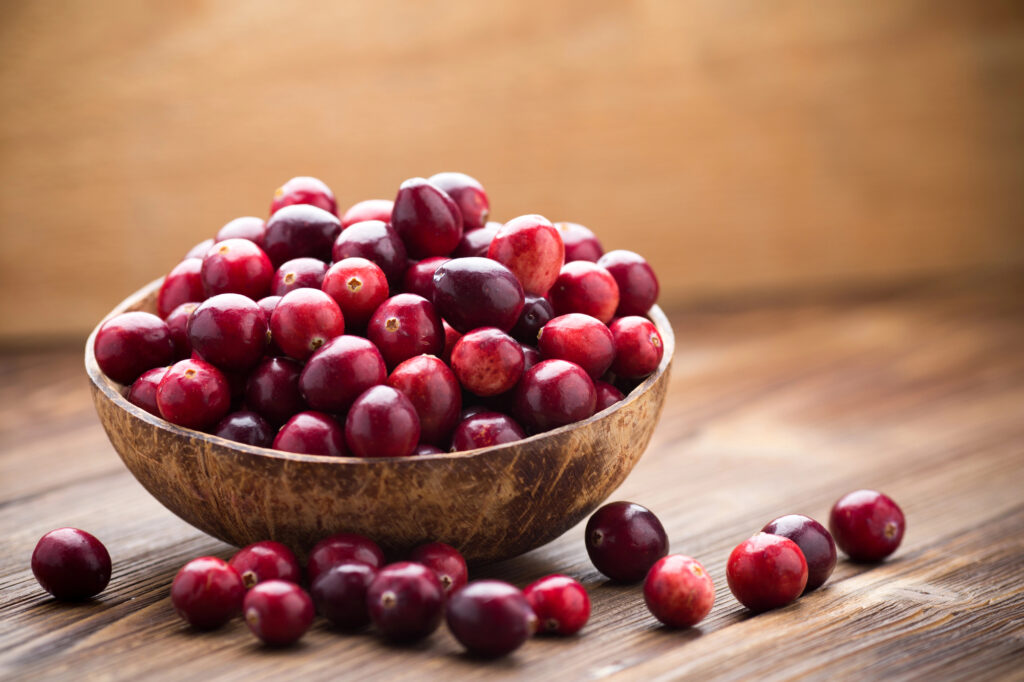The health benefits of cranberries have been well documented. While most research has focused on the cranberry’s ability to prevent and treat urinary tract infections, studies have also shown that these tiny crimson fruits can help prevent certain types of cancer, boost immunity, and improve cardiovascular health.
Previous research has shown that consumption of cranberry juice may help increase the abundance of beneficial bacteria in the gut, and this was the focus of a clinical trial by scientists from Université Laval’s Institute of Nutrition and Functional Foods (INAF) in Quebec. The results of their research were published in the journal npj Biofilms and Microbes in April.
Led by Yves Desjardins, PhD, the new study set out to test the effect of polyphenols and oligosaccharides extracted from cranberries on gut levels of Bifidobacterium, a genus of probiotic gut bacteria associated with reduced risk of diabetes and cardiometabolic disease. Researchers recruited 39 healthy individuals at INAF. Participants were given a cranberry extract containing 109 mg of polyphenols and 125 mg of oligosaccharides capsule form twice daily, morning and evening, the equivalent of ingesting 60 grams of fresh cranberries.
At the beginning of the experiment and again after four days, samples of plasma, urine, and stool were collected from participants. Fecal microbiota composition was analyzed using 16 S rRNA sequencing.
The results showed that after only four days of treatment, participants showed increased levels of disease-preventive Bifidobacterium. Cranberry extracts also stimulate the Akkermansia muciniphila bacterium, which plays an important role in helping reduce inflammation and strengthen the intestinal barrier.
“Normally, these bacteria are stimulated by dietary fiber consumption. We observed the same effect with cranberry extract at a dose almost 20 times lower,” said researcher Jacob Lessard-Lord, a postdoctoral fellow at INAF.
Conclusions
Given these results and those of other studies, the researchers said, cranberry extracts could be used to modify the inflammatory pathway and improve the prognosis of a chronic disease. By stimulating Akkermansia muciniphila bacterium and Bifidobacterium, the microbiota regenerates and recreates an anti-inflammatory environment. This results in strengthening the connections between the cells of the intestinal barrier, thereby fortifying it.
This is of particular interest when it comes to countering the harmful effects of a Western diet. “This diet alters the microbiota, causes inflammation of the mucosa, and compromises the integrity of the intestinal barrier, which plays a crucial role in protecting the body from bacteria present in the gut,” said Desjardins. “Alteration of the intestinal barrier…is a crucial factor in the onset and progression of inflammation and metabolic diseases…including diabetes and cardiovascular disease.”
Based on the short-term benefits of cranberry supplementation seen in the study, Desjardins’ research team is now interested in exploring the long-term effects of the extracts.






